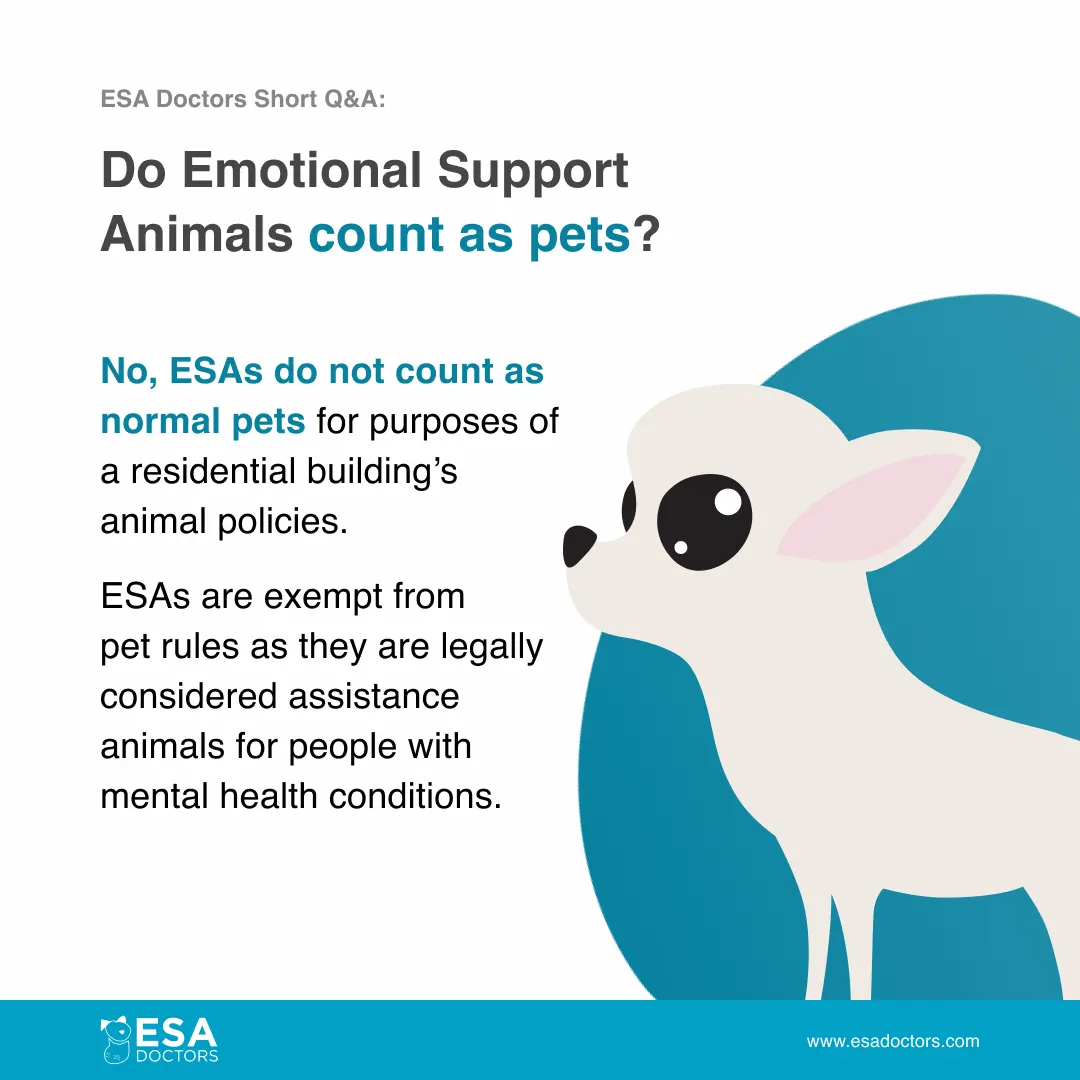The Short Answer: No, emotional support animals do not count as normal pets for purposes of a residential building’s animal policies. ESAs are exempt from pet rules because they are legally considered assistance animals for people with mental health conditions.
Even if your building has a rule that bans all pets, or certain types of pets, such as dogs, that rule does not apply to emotional support animals. Housing providers are expected to abide by federal Fair Housing rules that protect emotional support animal owners.
Generally speaking, yes. For example, if your building has limitations on the size, breed, and weight of an animal, those limits do not apply. Or, if your building charges a pet fee or pet deposit, those amounts can’t be charged to an ESA owner.
However, ESA owners are still expected to have well-controlled animals that do not create a nuisance or damage property. ESA owners are still liable for the acts of their animals, and they are responsible for ensuring their ESAs are good neighbors.
Most ESAs are dogs and cats but can also be small domesticated animals like birds, rabbits, fish, and gerbils. These types of animals can qualify as ESAs as long as the tenant has a valid ESA letter.
An emotional support animal technically does not count toward a building’s pet limit. Again, that is because an ESA is a legally recognized accommodation for tenants with mental health disabilities.
No, emotional support animals must still abide by pet rules in public spaces and venues. While they may be exempt from pet rules in residential buildings, ESAs are not exempt from prohibitions on pets in stores, restaurants, and other public areas.
Having an ESA is beneficial for your mental health, and in most cases, accepted by landlords — provided you have a legitimate ESA letter issued by a licensed health professional.









Leave a Comment